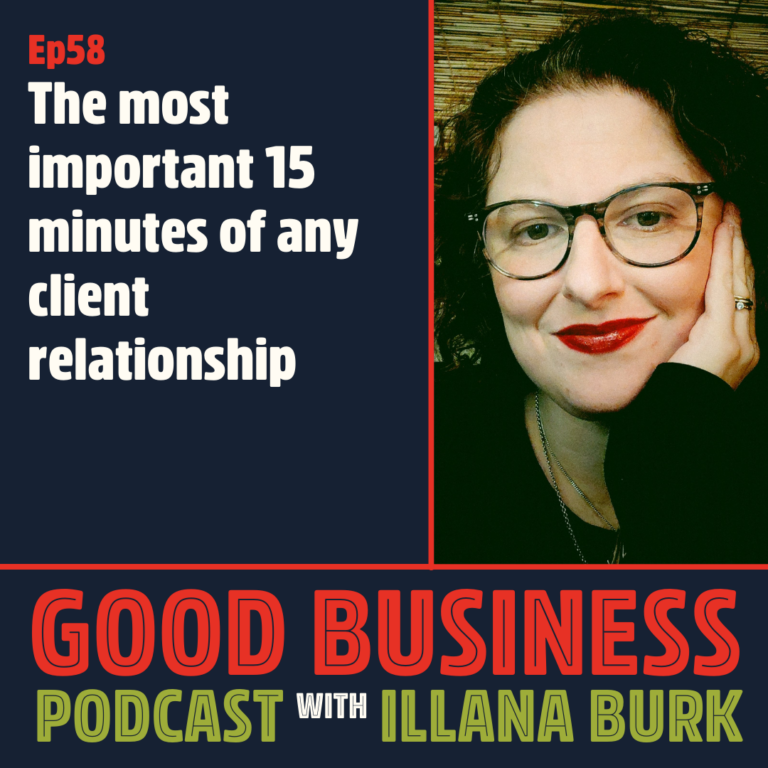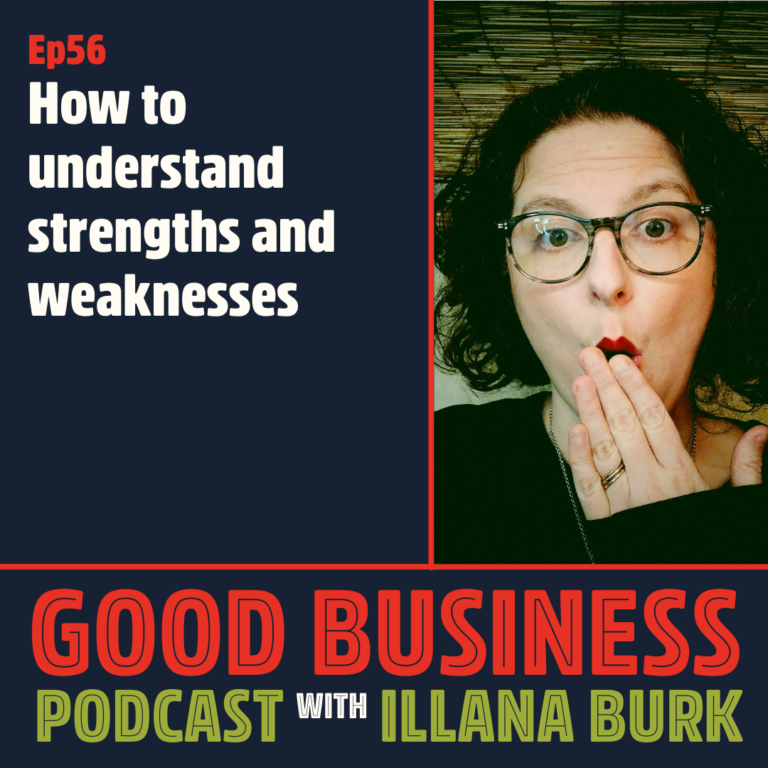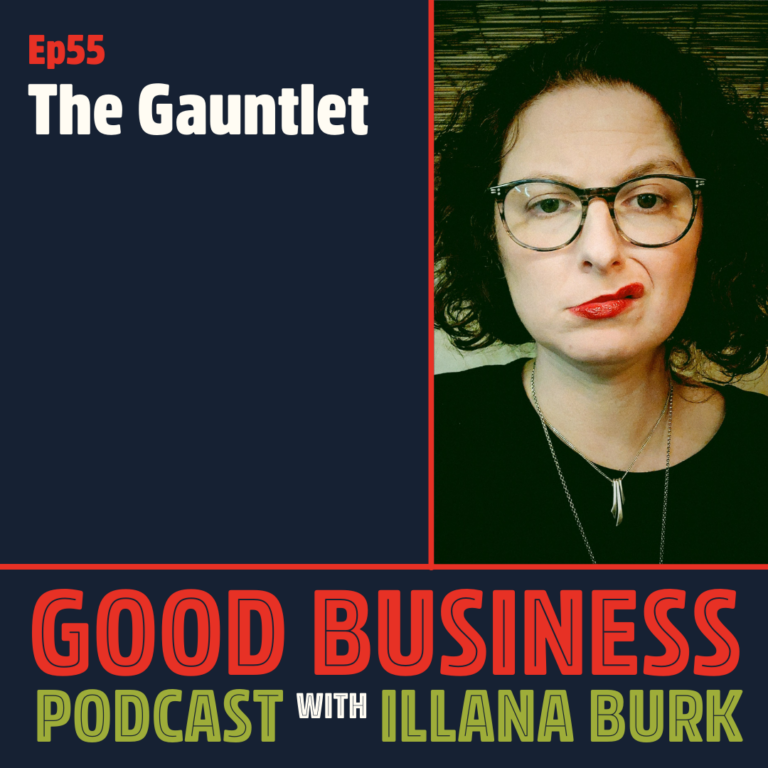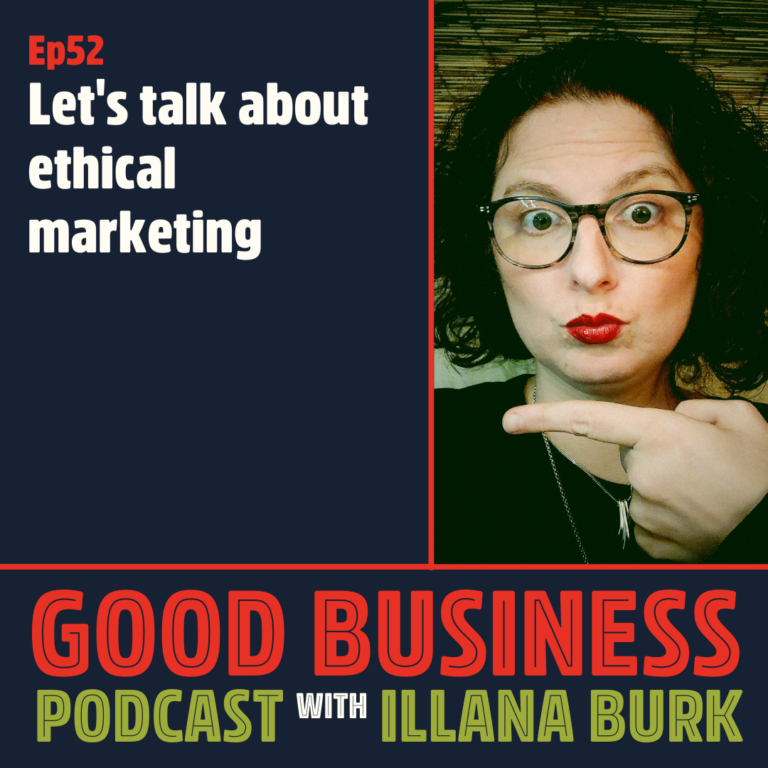Today’s topic is mistakes in business. Why? We all make them. Good business involves managing both good and bad situations effectively, with elegance, education, confidence. This skill is often overlooked. Let’s explore common mistakes, how people typically handle them (wrongly!), and better approaches. We’ll discuss power dynamics, the upside of handling mistakes well, practical tools and skills, and the bigger picture beyond client relationships.
[NOTE: The transcript below was generated with the help of AI. I do not advocate for the use of AI in copywriting in general, but see it as a useful tool for improving efficient editing of my own creative content. None of the actual content of the episode or the transcript was AI-generated. I just let the computer help me clean up the text so it can be more easily understood and consumed. ~i.]
Common Mistakes:
- Late deliveries, product errors, disappointed clients, failure to follow through (service providers).
- Wrong items, late arrivals, damaged goods, grumpy clients (product-based businesses).
- Everyone has faced these. Nobody escapes unscathed. My own experience: 15 years, 10 bad client experiences, 3 who think I’m the devil.
Why Over-Apologizing and Overcompensating Hurt:
- Clients expect it, making them more demanding.
- It changes the power dynamic, making you seem insecure and unprofessional.
- You lose control, potentially damaging the relationship.
Maintaining Power Dynamics:
- Over-apologizing and overcompensating can lead to:
- Client insecurity and aggression.
- Client micromanagement and fear.
- Breakdown of trust and relationship.
- You need to maintain power to deliver effectively and earn continued trust.
Taking Accountability:
- Apologize only for what you could have done better.
- If the mistake had impact, apologize for that (e.g., late delivery affecting client’s business).
- Don’t overexplain or blame yourself.
Addressing Mistakes:
- For minor issues or no impact: apologize, move on to next project stage.
- For high-impact issues:
- Apologize for the effect.
- Offer compensation if possible.
- Outline a plan to fix the issue and prevent recurrence.
- Move forward.
- If the client remains dissatisfied, offer to end the contract. Don’t tolerate abuse.
Surprising and Delighting Clients:
- Go beyond fixing the issue.
- Surprise them with a thoughtful gift unrelated to your work.
- This personalizes your relationship and builds goodwill.
- Example: Sending extra coffee for a broken bag.
Standing Firm Against Unreasonable Clients:
- If you’re right and the client is abusive, calmly stand your ground.
- Remind them of agreements and contracts.
- If necessary, end the contract. It’s not worth taking abuse.
- This applies to all businesses, though specific boundaries may vary.
Shifting the Conversation and Setting Expectations:
- Don’t dwell on mistakes. Remind the client it was a one-off and move forward.
- Don’t let the client control the conversation.
- Set clear expectations about communication and professionalism from the start.
Conclusion:
- Mistakes are inevitable, but handling them well can build strong client relationships.
- Be confident, graceful, and human.
- Treat clients as equals and set healthy boundaries.
- You can turn a bad situation into a positive one and create loyal clients.
More Episodes
The most important 15 minutes of any client relationship | GB58
In this episode of the Good Business Podcast, we dive into the critical 15 minutes that can make or break a client relationship. Want to know why these first few minutes are so crucial, what should be included, and how to adjust...
How to understand strengths and weaknesses | GB56
In this episode of The Good Business Podcast, I'm talking about good old traditional marketing stuff: SWOT Analysis. But of course, I have my own take on it. Here's what I'm including: What is a SWOT analysis? What you can do...
The Gauntlet | GB55
In this episode of The Good Business Podcast, I introduce the topic of the "Gauntlet" (sometimes also referred to as the Crucible), a stage in business where everything seems to go wrong... over and over again. This phase often...
Asynchronous Income vs Passive Income | GB54
What is "asynchronous income"? In this episode, I talk about why passive income is a total misnomer, the difference between passive and asynchronous income, and what you can find in the middle between (the myth of) passive...
You don’t have to be a commodity | GB53
How to know what you should commodify and what you shouldn't. In this episode, I address the idea that we don't actually have to become commodities in order to be successful business owners. First, I clarify what I mean by...
Let’s talk about ethical marketing | GB52
What is ethical marketing? What does it mean? What doesn't it mean? And are you afraid of the wrong thing? Lately, there's been a new flavor to the ethical marketing and selling conversation happening amongst small business...





